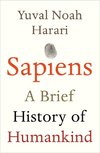
-
 Anglický jazyk
Anglický jazyk
Panama Canal
Autor: Source: Wikipedia
Source: Wikipedia. Pages: 58. Chapters: History of the Panama Canal, Panama Canal expansion project, Panama Canal Railway, Panama Canal Locks, Panama Canal expansion referendum, 2006, Bridge of the Americas, William Crawford Gorgas, Panamax, Gatun Dam, Health... Viac o knihe
Na objednávku
17.37 €
bežná cena: 19.30 €
O knihe
Source: Wikipedia. Pages: 58. Chapters: History of the Panama Canal, Panama Canal expansion project, Panama Canal Railway, Panama Canal Locks, Panama Canal expansion referendum, 2006, Bridge of the Americas, William Crawford Gorgas, Panamax, Gatun Dam, Health measures during the construction of the Panama Canal, Gaillard Cut, John Frank Stevens, Gatun Lake, Panama scandals, Chagres River, Panama Limited, Centennial Bridge, Panama, Coco Solo, SS Ancon, Edward Schildhauer, Fort Sherman, Panama Canal Authority, William Kennish, SS Ulysses, Ancon Hill, Fort Amador, Gold roll, PSA Panama International Terminal, The Path Between the Seas, Panama Canal fence, Alberto Aleman, John Findlay Wallace, Miraflores, Causeway Islands, Fort Randolph, Fort Kobbe, David du Bose Gaillard, Spooner Act. Excerpt: The Panama Canal (Spanish: ) is a 77-kilometre (48 mi) ship canal in Panama that joins the Atlantic Ocean and the Pacific Ocean and is a key conduit for international maritime trade. Built from 1904 to 1914, annual traffic has risen from about 1,000 ships in the canal's early days to 14,702 vessels in 2008, measuring a total 309.6 million Panama Canal/Universal Measurement System (PC/UMS) tons. In total over 815,000 vessels have passed through the canal. It has been named one of the seven modern wonders of the world by the American Society of Civil Engineers. One of the largest and most difficult engineering projects ever undertaken, the canal had an enormous impact on shipping between the two oceans, replacing the long and treacherous route via either the Strait of Magellan or Cape Horn at the southernmost tip of South America. A ship sailing from New York to San Francisco via the canal travels 9,500 km (5,900 mi), well under half the 22,500 km (14,000 mi) route around Cape Horn. The concept of a canal near Panama dates to the early 16th century. The first attempt to construct a canal began in 1880 under French leadership, but was abandoned after 21,900 workers died, largely from disease (particularly malaria and yellow fever) and landslides. The United States launched a second effort, incurring a further 5,600 deaths but succeeding in opening the canal in 1914. The U.S. controlled the canal and the Canal Zone surrounding it until the 1977 Torrijos-Carter Treaties provided for the transition of control to Panama. From 1979 to 1999 the canal was under joint U.S.-Panamanian administration, and from 31 December 1999 command of the waterway was assumed by the Panama Canal Authority, an agency of the Panamanian government. While the Pacific Ocean is west of the isthmus and the Atlantic to the east, the 8- to 10-hour journey through the canal from the Pacific to the Atlantic is one from southeast to northwest. This is a result of the isthmus's "curving back on itself" in
- Vydavateľstvo: Books LLC, Reference Series
- Rok vydania: 2018
- Formát: Paperback
- Rozmer: 246 x 189 mm
- Jazyk: Anglický jazyk
- ISBN: 9781157611554






 Ruský jazyk
Ruský jazyk 





